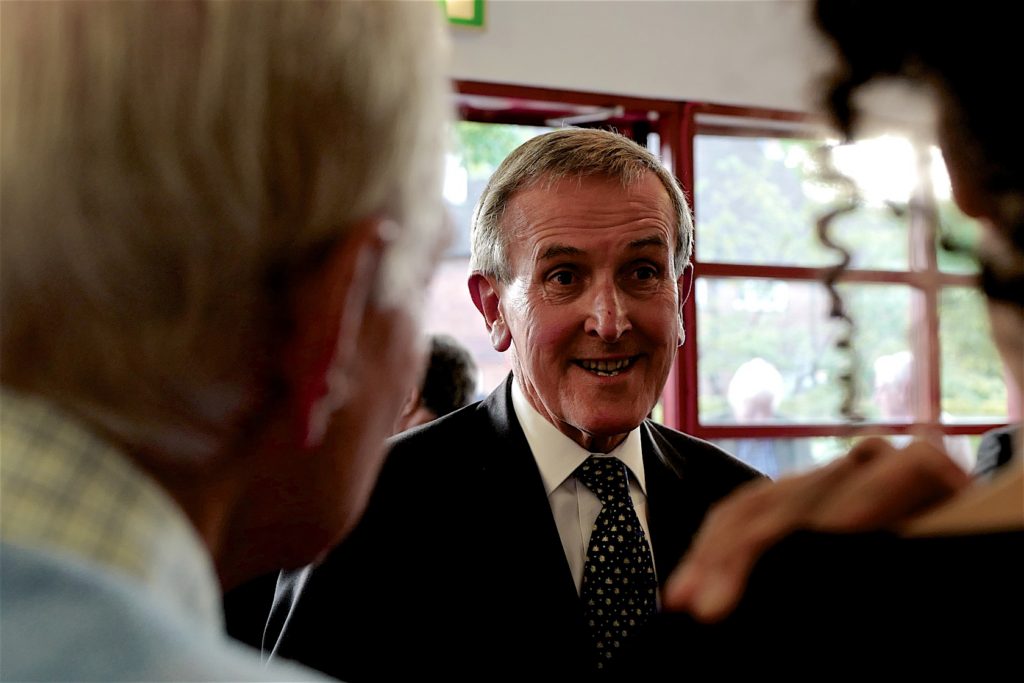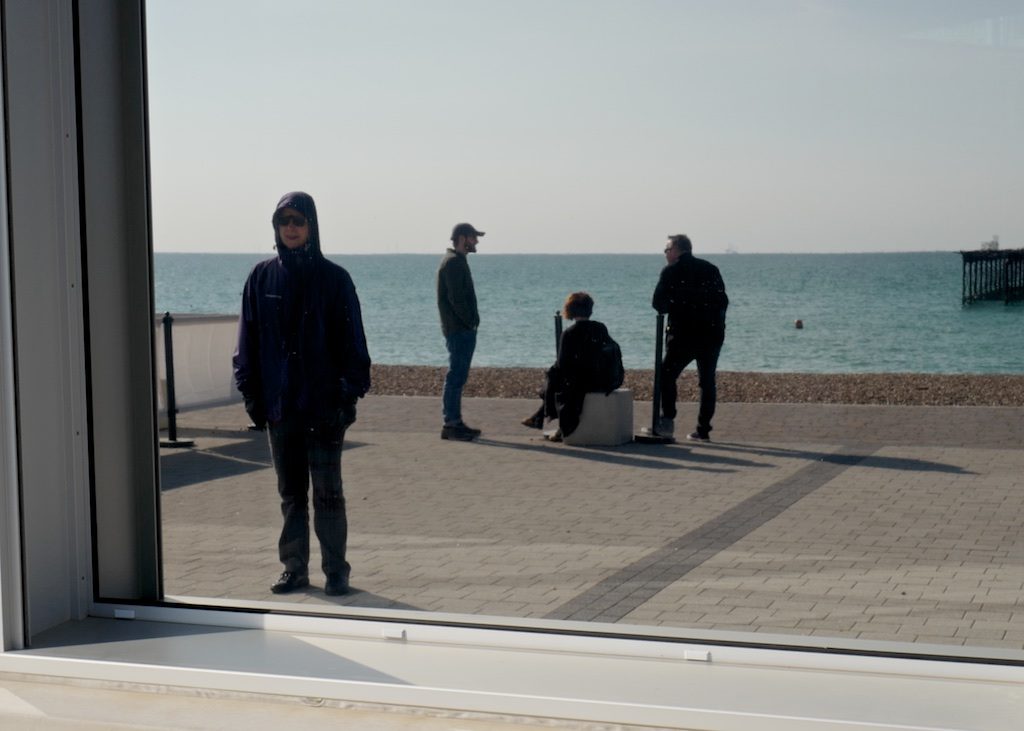Venice, off the beaten track.
The long reach of Thomas Piketty
Interesting and thoughtful survey article by Marshall Steinbaum in the Boston Review on the strangely cool response of the economics profession to Piketty’s magnum opus, Capital in the Twenty First Century. Conclusion:
So where does that leave us, and specifically, where does it leave Capital in the Twenty-First Century, three years after its publication? It seems strange, perverse even, to say that its influence has been “quiet” when it has had great influence on public debate. But what this tour of the landscape of academic economics tells us is that, despite its hostile reception, Piketty’s influence, and that of this book in particular, continues to grow in the academic realm and is not likely to wither and die anytime soon—much as that might pain the harshest critics or the many more who have kept their distance.
For the latter, unfortunately, it is all too easy to keep looking the other way. It is increasingly possible to have a comfortable and rewarding life as a professional economist and never even consider the broad issue of inequality or the controversial explanations for and consequences of it that Piketty offers. Social norms used to require economists to at least take on broad public sentiment and to consider the issues of the day when setting their agendas, but the amount of money available for economics research and teaching has never been higher, no matter the esteem (or lack thereof) in which economists are held by the public. High officials in government, in corporate boardrooms, in courtrooms, and in university administrations, alumni bodies, and boards of trustees still want to hear what economists have to say (or at least to make a point of ostentatiously seeking out their advice and approval), and to have that approval validated in public.
All of which avoids the crucial question: are we actually doing or saying anything to make the economy serve the people who inhabit it? Economists could very easily spend their individual and collective lives avoiding that question as the economy crumbles around them, with Piketty’s book serving as little more than a cry in the wilderness. Right now, there is no assurance it won’t end that way, but by reading between the lines, my suspicion—and hope—is that Piketty is not one in a series of pop–social science fads. Rather, his work on inequality is an agenda-setting and generation-marking intellectual achievement, potentially as explosive (albeit with a longer fuse) in academia as it has been outside of it.
Vive la France! (For the time being)
This morning’s Observer column:
The two biggest lessons of 2016 were the discovery of how social media could be used for “voter suppression” and how the open web could be “weaponised” by the “alt-right” to pollute the public sphere. The conventional wisdom that Trump did not have a data operation was mistaken. He did have a “digital operations division” based in San Antonio with about 100 programmers, web developers, network engineers, data scientists, graphic artists, ad copywriters and media buyers. Their main approach seems to have involved using social media and other data to identify Democratic voters in swing states who were unenthusiastic about Clinton and to target them with messages likely to reduce the likelihood that they would vote for her. On other words, to engage in data-driven vote suppression.
The other insight of 2016 was provided by Jonathan Albright’s revelations of the extent of the far right’s online ecosystem and its ingenuity in exploiting YouTube and other legitimate sites to disseminate fake news and conspiracy theories. In doing this, the movement exploited both the business models of Google and Facebook, which depend on increasing “user engagement” (ie sharing, likes, links), and human psychology (which seems to find fake news more interesting and “shareable” than more sober, reliable information).
It is now surmised that the Brexit campaign in the UK may have been a dry run for these techniques and we know that they were deployed in France, presumably to increase the chances of a Le Pen victory…
Returning to earth
Neil McGregor
Neil McGregor, former Director of the National Gallery and, later, the British Museum and now Inaugural Artistic Director of the Humboldt Forum in Berlin gave the tenth ST Lee Lecture in Wolfson tonight. His topic was “State, Faith, Violence: case studies in the coercion of belief”, and it was a riveting and deeply depressing account of humanity’s capacity for persecution of ‘the other’. He’s a terrific lecturer, with an unhurried and enthralling style. But then, if you’ve heard or read his History of the World in a Hundred Objects, you will know that.
I’m pleased with this portrait, which really captures him as he is. Bigger size here.
Quote of the Day
“I call ‘journalism’ everything that will be less interesting tomorrow than today.”
André Gide, 1921.
Street life, Venice
Seaside Quartet
The political impact of infrastructure spending
This is the Abstract for a fascinating paper, “Highway to Hitler” by Nico Voigtlaender and Hans-Joachim Voth (NBER Working Paper No. 20150, Issued in May 2014)
Democracy is not an absorbing state; transitions to autocratic rule have been frequent throughout history and often followed periods of instability under democratic rule. In this paper, we ask whether autocrats can win support among voters by showcasing their ability to restore order and to “get things done.” We analyze a famous case – the building of the highway network in Nazi Germany. Highway construction began shortly after Hitler became Chancellor, and was one of the regime’s signature projects. Using newly collected data, we show that highway construction was highly effective in boosting popular support, helping to entrench the Nazi dictatorship. These effects are unlikely to reflect direct economic benefits. Instead, highway construction signaled economic “competence” and an end to austerity, so that many Germans credited the Nazi regime for the economic recovery. In line with this interpretation, we show that support for the Nazis increased particularly strongly where highway construction coincided with greater radio availability – a major source of propaganda. The effect of highways was also significantly stronger in politically unstable states of the Weimar Republic. Our results suggest that infrastructure spending can win “hearts” for autocracy when “minds” are led to associate it with visible economic progress and an end to political instability.
Trump’s popularity ratings may improve.
And while we’re on the subject of Trump…
To some mental-health professionals, the debate over diagnoses and the Goldwater rule distracts from a larger point. “This issue is not whether Donald Trump is mentally ill but whether he’s dangerous,” James Gilligan, a professor of psychiatry at New York University, told attendees at a recent public meeting at Yale School of Medicine on the topic of Trump’s mental health. “He publicly boasts of violence and has threatened violence. He has urged followers to beat up protesters. He approves of torture. He has boasted of his ability to commit and get away with sexual assault,” Gilligan said.
Bruce Blair, a research scholar at the Program on Science and Global Security, at Princeton, told me that if Trump were an officer in the Air Force, with any connection to nuclear weapons, he would need to pass the Personnel Reliability Program, which includes thirty-seven questions about financial history, emotional volatility, and physical health. (Question No. 28: Do you often lose your temper?) “There’s no doubt in my mind that Trump would never pass muster,” Blair, who was a ballistic-missile launch-control officer in the Army, told me. “Any of us that had our hands anywhere near nuclear weapons had to pass the system. If you were having any arguments, or were in financial trouble, that was a problem. For all we know, Trump is on the brink of that, but the President is exempt from everything.”
From “How Trump Could Be Fired” in the New Yorker.





